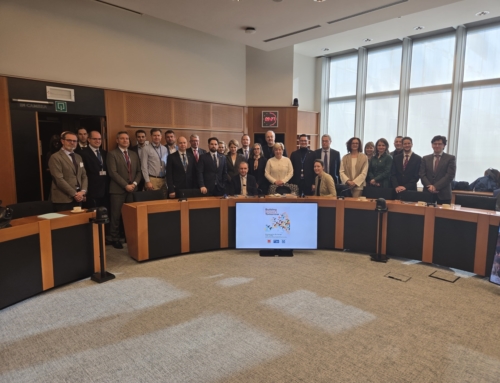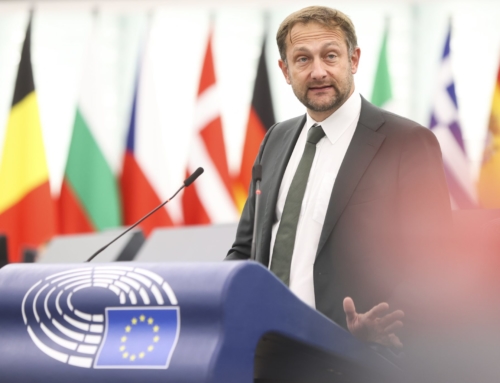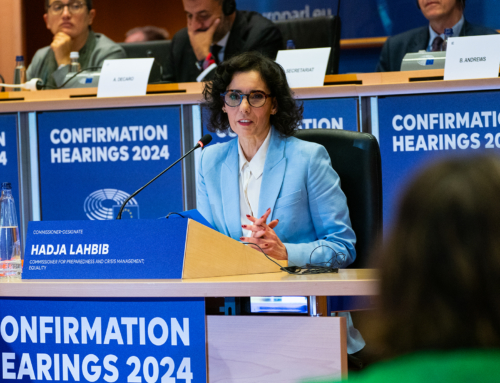8 July 2022,
For the last Plenary before the summer, the European Parliament adopted several resolutions on the upcoming European Care Strategy, mental health at work, and women’s poverty, in addition to a controversial resolution to promote abortion following the US Supreme Court decision.
On Tuesday 5th July, MEP adopted a resolution on Mental health in the digital world of work, focusing on the right to disconnect to ensure a better work-life balance, especially after this period of pandemic. FAFCE has been contributing to the drafting of the EU Work-life balance directive, and recently organised in June of last year a webinar on “Family work-life balance in times of changes”, calling to invest in families and in equal opportunities for parents.
A resolution on Women’s poverty in Europe was also adopted, as part of a project to develop an EU anti-poverty strategy: the Parliament recognised “the pivotal role of women in the social, care, cleaning, education, health and retail sectors that keep our societies functioning”. Moreover, it recalled that single-parent families are at a greater risk of poverty and social exclusion and underlined “the importance of policies that take into account the demographic challenge and promote equal opportunities for all, particularly those that are most hit by the crisis, such as vulnerable groups, families in all their diversity, the you”ng generation and the elderly” (§ 3).
The Parliament encouraged the Commission and the Member States “to reinforce care service work-life balance measures and family-friendly working arrangements” (§15) and “to guarantee women’s participation in the labour market, such as better maternity leave, significantly longer paternity leave periods, paid and non-transferable parental leave, flexible working hours, on-site childcare facilities, care services and remote working policies” (§23).
The European Parliament strongly encouraged the European Commission to adopt a model of “Europe that cares” when contributing to a common European action on Care:
The Parliament recognised the important contribution of carers to the most vulnerable persons during the pandemic, especially the role of families for child care and the elderly. “44 million people in the EU provide informal long-term care to family members, neighbours or friends, most of them being women” (§B). In a model of “Europe that care”, the EU should be a place of quality care for every child, equal access to quality care services and quality long-term care for a long and quality life. It finally highlighted the importance of informal care:
“3. […] highlights that according to the principle 18 of the European Pillar of Social Rights (EPSR) ‘Everyone has the right to affordable long-term care services of good quality, in particular family- and community-based care services’, and stresses that in order to fulfil this principle, care provision should be expanded;
14. […] urges the Commission to take effective measures to make sure that EU funds are used to transition from institutionalized care to community and family-based care, while ensuring the family care in all its diversity;
42. Recalls that social protection and support to individuals and families, with the special focus on groups in vulnerable situations, such as big families, single parent families or families with a child with disabilities, are essential and calls on the competent national authorities to ensure universal, adequate and accessible social protection systems for all and integrated child protection systems to leave no one behind
68. Notes that to enable people to continue to be cared for in their own homes, mobile care and support need to be expanded and further developed to relieve the care tasks of family caregivers, especially women, not only through awareness-raising activities but also through adequate support including financial compensation, thus allowing relatives who provide care to carry on their employments and to work towards the compatibility of care and paid work”.
In a less family-friendly approach, the European Parliament concluded this week by adopting a resolution on the US Supreme Court decision to overturn abortion rights in the United States and the need to safeguard abortion rights and Women’s health in the EU. It proposed to include the right of abortion in the Charter of fundamental rights of the European Union (§2), and encouraged European institutions and Member States to “compensate for any possible reduction in US funding to sexual and reproductive health and rights” (SRHR globally), “and to give priority to universal access to safe and legal abortion and other SRHR in their external relations” (§14).







